It’s an intractable problem with converting a book to another medium: your outlook of the franchise as a whole is almost entirely dependant upon which media you consume first. It’s perhaps not such an issue with light novels translated into anime given that the two are, structurally and narratively at least, very close. For a novel like Yukikaze though? A novel that is often mentioned in the same breath as Orson Scott Card’s Ender’s Game and George Orwell’s 1984. In this instance I read the first novel - simply Yukikaze - before seeing the 2002, five episode OVA series - Sentou Yousei Yukikaze (Battle Fairy Yukikaze) - and though I obviously can’t say for sure, I’m fairly certain had I seen the latter first, I would be disinclined to read the former.
Starting this argument with “It’s not that bad, but” is tantamount to starting a conversation with “I’m not racist, but” - the justification invariably ends up contradicting your opening statement. The OVAs are extraordinarily gorgeous, and especially so for their time, it’s no wonder that Gonzo - then at the height of their creative power - twice won awards for it’s visual work on the series. Unfortunately however they take the plot of book, smash it into jagged pieces and disjointedly try and fit them back together in the hope that they make some kind of sense. They don’t. Coming out several years after it, I can’t rule out that the second novel (that I haven’t read), Good Luck Yukikaze, somehow contextualises the direction the series stakes including the wholly original final episode; my gut feeling though is that the OVAs will remain as inscrutable as they’re perhaps intended to be.
It’s a peculiar thing given that the book lends itself to episodic adaptation through virtue of being a collection of shorter stories about a central group of characters and locations. There is of course the larger narrative of humanity versus the alien aggressors, the JAM, and the taciturn Lt. Rei Fukai and his relationship with the Super Sylph jet fighter Yukikaze and his commanding officer Maj. Booker. Each individual story contributes to a larger picture of the war itself, the characters involved and the oddly prescient theme of the role of humanity in an increasingly mechanised and computerised war.
To start from the beginning though: humanity endured a tumultuous first contact with the JAM after a trans-dimensional corridor opened up on Earth. Humanity survived and eventually took the resulting war to the JAM’s homeworld, establishing forward bases and effectively isolating the war from Earth. Amidst all of the jet fighter squadrons on the front lines, the Special Air Force is the most elite, using incredibly high tech fighters (“sylphs”) to obtain data on the combat operations of the JAM and to return, rarely if ever engaging in combat. In short, they act like a boomerang which is where the force’s nickname comes from.
All of that information is in the prologue of the 2001 revised novel by Chohei Kambayashi so it’s perhaps unfair to level criticism at the anime for not including it, to an extent though the anime does include it, just not very well. So Major Booker, now quite the pretty boy rather than a scarred and world-weary veteran, is shown lovingly carving his boomerang and discussing with Rei his trials with the computer-aided one. Never though is the scene used as a comparison for a computer’s role in warfare, just as a somewhat quirky aside. That ethos is what underpins the OVAs when comparing it to the book: some ideas have bled through but the translation has altered them, in the end fundamentally changing the message of story from one of questioning technology’s role in a modern war to a kind of limp transhuman conjoining of man inside machine. I would even go as far as to say that teasing apart the book is what created this sense of unease when watching the OVAs: it felt like it was using the Yukikaze characters and stories for a different message than they were originally intended.
Some of that may come from intrinsic differences in the medium. For instance it is unquestioningly accepted that within the book the JAM are never described - neither their planes nor their demeanour - yet that’s impossible when doing breakneck dog fights with them on screen. Similarly aspects that are only intimated in the book - Yukikaze’s sentience and the JAM’s manipulation of human forms - are laid bare with the anime Yukikaze babbling excitedly like a chat-room addict with ADD rather than a quiet sentinel, elsewhere the JAM’s overtures towards humanity are made blatantly clear is the lynchpin of the final episode.
Perhaps there was some pressure to provide a more thrilling introduction and conclusion than the book’s plot enabled leading to such an odd disjoint. The first episode tears through the entirety of the book’s story yet the second, third and fourth episodes cherry pick individual stories from it (including a blink-and-you’ll-miss-it shot of a snow plough) but out of sequence, leaving the fifth for a grand finale, replete with important characters we’ve barely seen before and a large scale air battle the likes of which would be all but impossible to convey in prose.
Those battles are some of the high points of the OVAs with word that Gonzo worked with the Japanese Air Self Defense Force to capture sounds and tactics totally believable given the evidence. It certainly matches the author's fanatical attention to detail when it comes to terminology with whole paragraphs dedicated to the mechanical startup of aircraft and casual references to GLOC and AWACS scattered liberally throughout. In both cases though the dogfights are thrilling and though their finer points may be lost on the layman, the time invested in them is plain to see.
If all of this sounds like a “the book is better” argument, then it’s fair to say that’s a given. It is only in very rare cases that an anime/film/series is consistently better than its source material; novels especially as you will never get the same insight into the characters and the disjoint between imagination and rendition will always be present. Regardless, the reality is that the OVA series of Yukikaze doesn’t cohere in an even remotely satisfying way and it’s only by comparison to the book are you able to get a sense of what could have been. Stilted dialogue abound combined with characters that float through incoherent events, bearing little resemblance to what went before it similar to how plot points are raised and then dropped as quickly as Rei gets through co-pilots.
What few liberties are taken only serve to confuse and muddle which is maybe the OVA series’ critical failing. In attempting to carve out its own identity, inspired by but not closely adhering to the novel, it instead gets wrapped up in the details without seeing the episodes as a continuum. It may be a product of its time, the novel was after all written and published during the Cold War while the OVAs straddled the commencement of the Iraq War; both are echoes of a time when the role of the military and the use of weapons was under question. Whereas the book questions humanity in an inhuman war, the OVAs postulate a kind of quiet insurgency by our own machines.
As a “compare and contrast” exercise the OVAs provide an interesting counterpoint to the first novel: visually stunning but narratively muddled. In the end though, what you get from the OVAs will be very different depending on whether you have read the book(s) or not and I’d be fascinated to hear from anyone who has seen the former before reading the latter or just experienced one or the other. Individual elements of the OVAs are enjoyable, not least of which the aerial combat which is almost worth the price of admission, but in aggregate it’s hard to recommend for all but the most niche of fans.
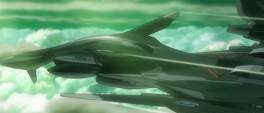
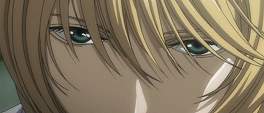
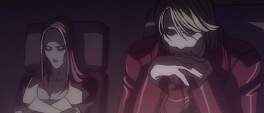
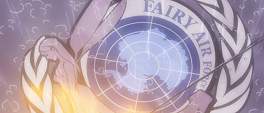
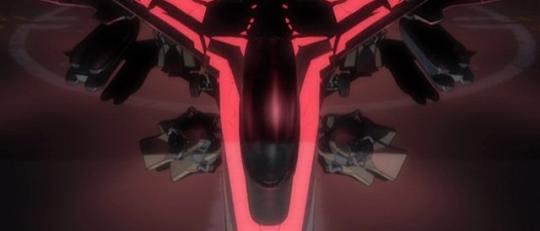
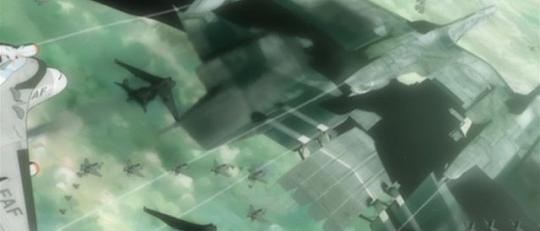
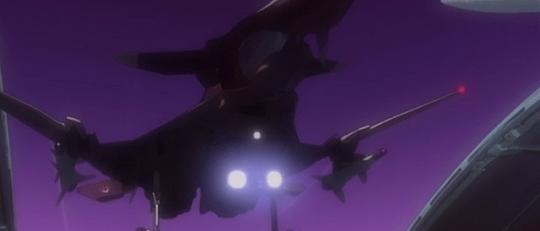
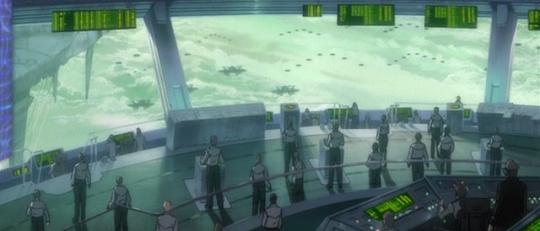
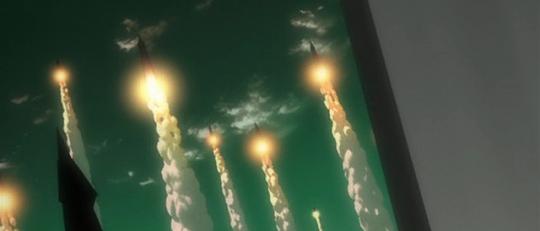
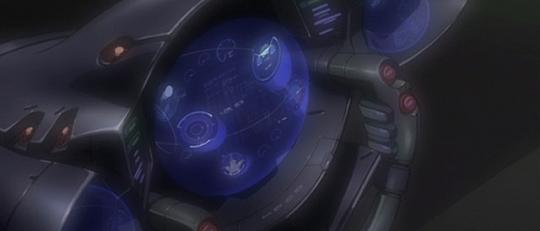
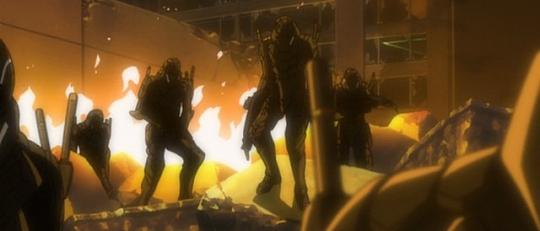
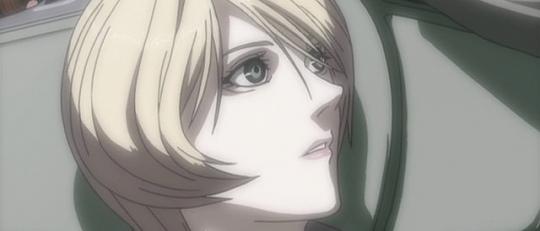
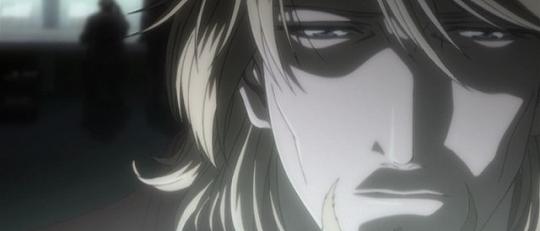
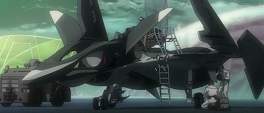
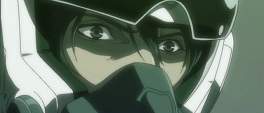
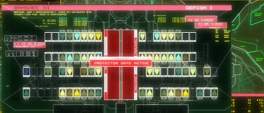
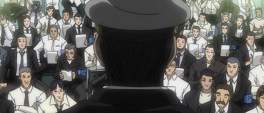
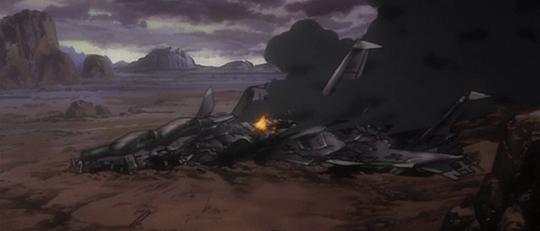
In particular, the series glossed over the overwhelming majority of events involving the computer systems running the entire military structure. I truly think the story could have used an entire full length series of 12-25 episodes to tell, and been much better off for it. There was simply so much going on in the background of the story (politics, human/AI conflicts, personal details with certain characters), it really does appear to be a random jumble of events when the background details are omitted.
That being said, I cannot regret watching the series first, because I believe having the visuals of the animation in mind made the books a bit easier to grasp, and much more fun to picture. I'm an avid aircraft enthusiast, so seeing the variety of seemingly nonsense aircraft designs appear so believable is quite fun, and really drives home that this truly is a different planet, with slightly different physics and an entirely different take on aerodynamic science. I recall reading once that the design teams for the animation were directed to develop aircraft that looked and flew in ways that were completely contrary to reality.
In response to your comments about the second book, and how it relates to the plot, it actually is fairly close to the events of the final animated episode. I am not -quite- finished with the second book, but the overall plot is essentially a very expanded variation of the events shown over the course of the last episode, as well as the ending of episode 4, and several other scattered elements from throughout both books.
What I found rather irritating though is that they took some of the extremely critical plot points of the second book, and compressed them into a barely recognizable form, eliminating any of the weight those events carried, and removing a good deal of the psychological and philosophical elements from the story (which to be fair, there wasn't really time to go into).
While I love the visual elements of the series, I really can't appreciate the story in that format, because important revelations based on long periods of introspection and discussion in the book turn into a sentence-by-sentence reveal at critical points with no appreciable build-up, as if characters are pulling important storyline elements out of thin air. The second book is a bit slower than the first, with less overall action, but it delves much deeper into the man vs. machine debate, which I think is where the series took a good amount of its direction.
I have heard there is a third book in the series, but it has not been translated as of yet. I would definitely recommend getting and reading the second book though.